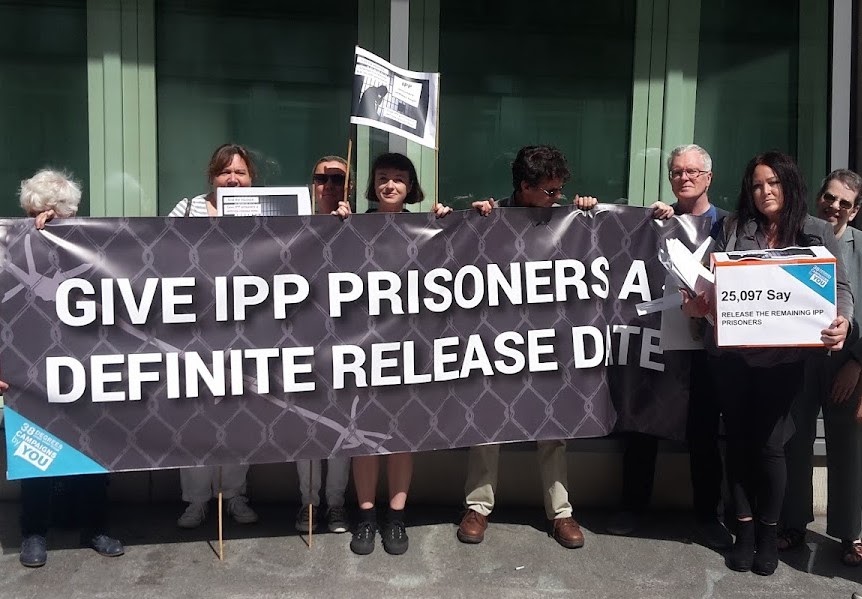
In the midst of deepening capitalist economic crisis and increased social unrest, the repressive apparatus of the state has become even more brutal and disregarding of even a semblance of basic human rights. Former life sentence prisoner JOHN BOWDEN reports on the Victims and Prisoners Bill, currently being debated in the House of Lords.
Over the past two years, the government has introduced draconian measures to curtail effective protest and target marginalised communities. The Public Order Act 2023 massively increased the power of the police to restrict and criminalise public protests, and to stop and search targeted minority ethnic groups. This hardening of the ‘law and order’ social and political climate inevitably finds its most vicious expression in the treatment of prisoners, especially those labelled the ‘worst of the worst’, mainly life sentence prisoners. The Victims and Prisoners Bill, if passed, will take the decision on whether such prisoners can eventually be released out of the hands of the Parole Board or judiciary and put it into those of a political establishment driven by a far-right ‘tough on crime’ agenda. This will effectively condemn many life sentence prisoners to die in prison without recourse to judicial procedure or human rights oversight.
The Bill claims to provide victims of crime with improved support and guidance but victim-based organisations say it does nothing to meet the key needs of victims despite the title of the Bill. The Domestic Abuse Commissioner has publicly said that the Bill will distract attention from the real needs of victims and actually undermine those needs. The reality is that the prime purpose of the Bill is to remove from a growing number of prisoners the human right to an independent review of their imprisonment.
The Justice Ministry had already published in 2022 a ‘Root and Branch Review of the Parole System’ which recommended greater ‘ministerial oversight’ of Parole Boards and encouraged the recruitment of more former police officers to sit on parole panels. The new Bill now totally removes the independence of the Parole Board in deciding on the release of long-term prisoners. Long term imprisonment is already on the rise in Britain: tariffs (minimum terms, set by the courts) are increasingly lengthy, and many lifers are held for decades beyond their original tariff. Britain holds more life sentenced prisoners than any country in Europe, in both absolute terms and in proportion to overall population: in 2016 the United Kingdom had 8,554 life sentenced prisoners (equivalent to 13 people per 100,000 of population. The next highest countries were France – 489 (0.7 per 100,000), Russia 1,766 (1.20), Germany – 1,863 (2.3) and Turkey 7,303 (9.3). These lifers are warehoused in a prison system which is massively overcrowded and in which gaols resemble penal slums.
The Victims and Prisoners Bill takes forward the proposal in the Root and Branch Review that release decisions related to a significant ‘top-tier’ cohort of life sentence prisoners will be subject to ‘ministerial oversight’. Effectively, they will be prevented from leaving prison ever. Inevitably in an institutionally racist criminal justice and prison system, the ‘top tier’ of life sentence prisoners will be disproportionately black, Asian and minority ethnic, with young men the most clearly targeted for this labelling. The government’s own Equality Impact Assessment for the Bill admits as much, stating that there is ‘a higher proportion of Asian, Black, and those aged 18-20 in those sentenced to a top-tier offence’.
The Bill will also considerably lessen the hope of almost 3,000 prisoners serving terms of Indefinite Imprisonment for Public Protection (IPP) of ever being freed. In the face of a sustained anti-IPP campaign and UN condemnation of the psychological torture of those serving the sentence, the Bill throws a crumb to the liberal reformists by agreeing to reduce the time those IPP prisoners who manage to be released on parole will then be subject to supervision on licence in the community. At the same time, the government has continued to adamantly reject the parliamentary Justice Committee’s recommendation last year that all IPP prisoners should be resentenced to more appropriate determinate sentences.
The Victims and Prisoners Bill, along with the Public Order Act and Illegal Migration Act, is a testing ground for more fundamental changes in Britain’s human rights framework, and as always it is the most socially marginalised and demonised groups who are used to fuel the eradication of human rights generally for the working class. The treatment of prisoners, especially, has always been an accurate barometer of the social and political climate of capitalist society, and by condemning an increasing number of prisoners to die in prison without proper judicial process reveals what contempt the state has for the human rights of the poor generally. In June 2023, following a flawed consultation process, the government announced legislation to repeal the Human Rights Act, which imports the European Convention on Human Rights into domestic law, and replace it with a so-called Bill of Rights. Although this Bill was subsequently dropped, the government has continued to do everything possible to avoid compliance with European or international human rights law. People in prison are already feeling the brutal consequences of this, and there are more attacks to come on the working class in general as the veneer of social democracy and ‘equal rights for all’ disappears in the wake of a deepening social and economic crisis.




